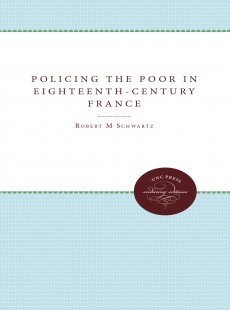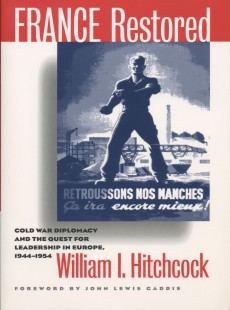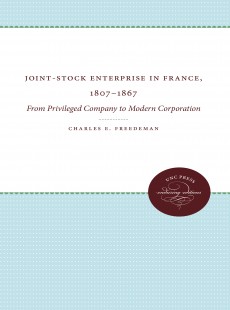
Policing the Poor in Eighteenth-Century France
Robert M. Schwartz
 Publisher: University of North Carolina Press
Publisher: University of North Carolina Press
Imprint: The University of North Carolina Press
Published: 10/2017
Pages: 344
Subject: History
| University of North Carolina
Print ISBN: 9.78E+12
eBook ISBN: 9781469639888
DESCRIPTION
Government efforts to control the activity of the "unworthy poor" -- those of sound mind and body who were seen to prefer idleness over productive work -- were most pronounced during two periods of repressive policing, one in the early eighteenth century and the other in the last two decades before the Revolution. From 1724 to 1733 beggars were interned in hopitaux, existing municipal institutions intended for the care of the "worthy poor," including orphans, the infirm, and the aged. But from 1768 until the outbreak of the Revolution, more stringent measures were taken. Sturdy beggars and vagrants were confined apart from the worthy poor on specially established, royal workhouses called depots de mendicite, and in the case of some repeat offenders, were sentenced to the galleys.
This stepped-up level of policing arose not only from royal administrators' long-standing view of mendicity as criminal activity; it was also made possible because the propertied classes had likewise come to believe the mendicant poor were a danger rather than a nuisance. Economic and demographic conditions combined to swell the ranks of paupers and vagrants, especially in the 1760s and 1770s, and social tensions, along with calls for government action, multiplied in proportion to their numbers. As villagers came to call upon the improved royal police for help, a popular mental association of the state with public security began to take root.
In arriving at these conclusions, Schwartz concentrates on law enforcement in a single area, Lower Normandy, but continually provides a perspective on local events by putting them in the context of national trends and realities. He tells the story of the poor in eighteenth-century France in sympathetic terms, giving a human face to poverty and to the men who policed its effects.
Originally published in 1987.
A UNC Press Enduring Edition -- UNC Press Enduring Editions use the latest in digital technology to make available again books from our distinguished backlist that were previously out of print. These editions are published unaltered from the original, and are presented in affordable paperback formats, bringing readers both historical and cultural value.
RELATED TITLES









